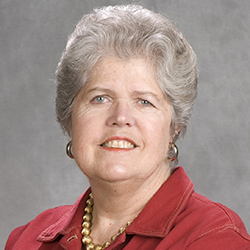
BY EMILY GILL
In 2019, Secretary of State Mike Pompeo created a Commission on Unalienable Rights “to provide a new vision for human rights policy that would . . . uphold religious freedom as America’s most fundamental value” and “our country’s first freedom.” On release of the Commission’s report this year, he criticized The New York Times’ 1619 Project, based on scholars’ reexaminations of the legacy of slavery, as “a dark vision of America’s birth” and a “disturbed reading of our history.”
Former agency officials and human rights scholars, however, have criticized this elevation of religious liberty as a deviation from the nation’s longstanding policy that all rights are created equal.
Elevating the protection of religious freedom over other rights potentially allows these other rights to be upheld only insofar as they accord with the religious beliefs of those who are supposed to protect them. Different religions, as well as groups and individuals of the same religion, vary greatly in their interpretations of their religious commitments.
A number of Pompeo’s panel members were religious conservatives opposing abortion and marriage equality. Other nations that follow this lead may use religious reasons to deny access to reproductive health services or to persecute LGBTQ individuals and same-sex couples. Diplomatic efforts to promote women’s rights in Iran and Saudi Arabia and to stop the persecution of the Uighur minority in China may come to naught. A hierarchy of rights, opined a former Obama administration official, may bolster repressive governments to say, “We are no different from you. You have your priorities; we have ours. Now butt out.”
Elevating religious liberty as the priority is also problematic on the domestic front. Several lawsuits are in progress against government-licensed and/or funded foster care and adoption agencies that refused to place children with couples of the “wrong” religion (in one case Roman Catholic), with members of the LGBTQ community or with others failing to meet their narrow criteria for suitable parents.
In July, the Department of Health and Human Services finalized a rule erasing protections for transgender patients against discrimination by doctors, hospitals and health insurance companies. The Department of Education has rescinded rules allowing transgender students to use bathrooms of their choice or to participate in sports in accordance with their gender identities. The Justice Department is initiating a roll-back of protections for transgender individuals in federal prisons. The Office of Personnel Management has suspended protections for transgender employees of federal contractors. Finally, in July the Trump administration issued a rule to be finalized after a comment period, which would allow single-sex homeless shelters to exclude transgender individuals from facilities that correspond to their gender identities.
Christianity is the majority religion in the U.S. Some of its conservative adherents, however, want to promote not only Christianity, but also a particular interpretation of it, one that “purports to derive its legitimacy from its claim to represent a specific identity unique to and representative of the American nation” (Katherine Stewart, “The Power Worshippers”). In Stewart’s view, this is not simply a cultural movement but also a political one. Adherents argue that the Bible mandates right-wing policy positions on deregulation, private property, flat-rate taxation, social welfare programs, male supremacy and illegal immigration. Coordinated religious freedom bills have been introduced into many state legislatures by those who believe “that right-thinking Christians should assume power in all spheres of life” (Stewart).
The free exercise of religion is a fine thing, reflecting deeply held beliefs and resulting in practices that can better our society. Properly interpreted, it can promote the stability of liberal democracy and the pluralism that should characterize it. What is not fine is the attempt of some religious believers to induce public authority to impose their views on the many others who do not share them.
Emily Gill is Caterpillar Professor of Political Science Emerita, Bradley University

Recent Comments